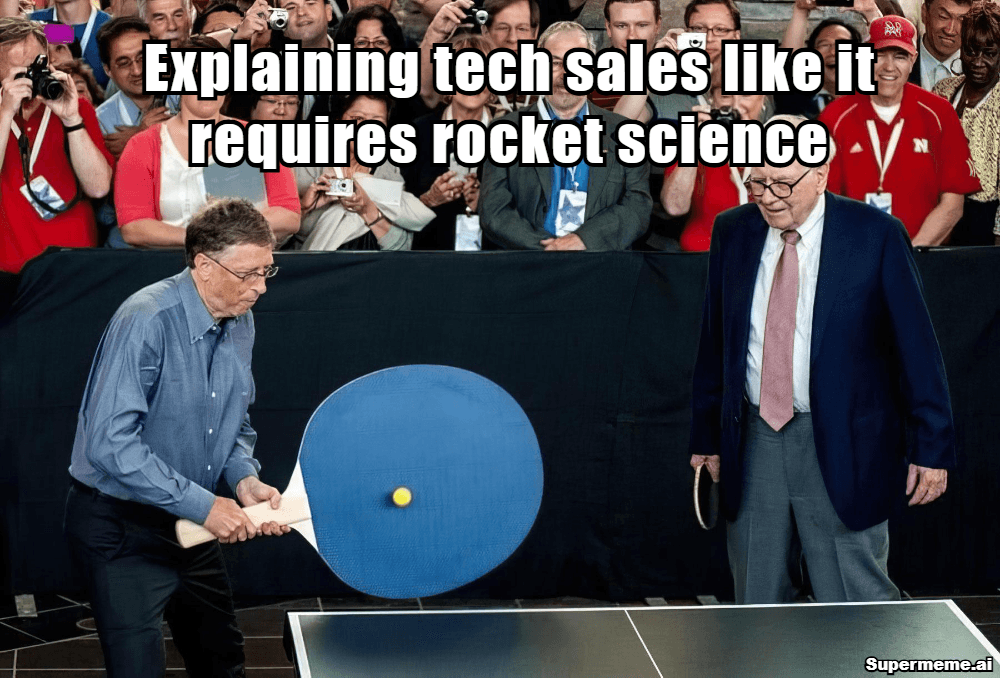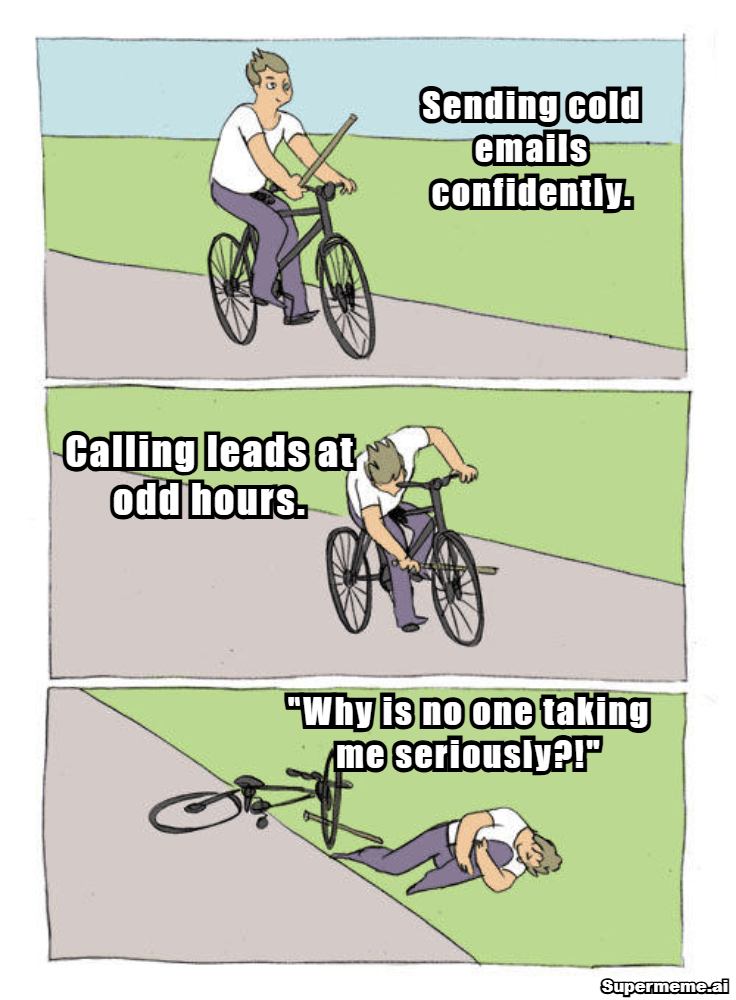Your Complete Guide to Launching a Tech Sales Career in 2025
The world of tech sales in 2025 is dynamic, data-driven, and brimming with opportunity for those who are prepared to adapt and grow. As technology reshapes how companies sell and how buyers purchase, launching a tech sales career now means embracing a blend of technical know-how, digital fluency, and human-centric skills. Whether you’re a recent graduate, a professional pivoting from another field, or an experienced salesperson looking to break into tech, this guide will walk you through everything you need to know to succeed in tech sales in 2025.
1. Understanding Tech Sales in 2025
Tech sales involve selling technology products or services-such as software, hardware, cloud solutions, or IT services businesses or consumers. The roles are diverse, ranging from entry-level sales development representatives (SDRs) to specialized account executives and solution consultants. In 2025, tech sales is more than just pitching products; it’s about solving real business problems, building relationships, and leveraging advanced technology to deliver value.
2. The Evolving Tech Sales Landscape
Major Trends Shaping Tech Sales
The tech sales environment in 2025 is shaped by several key trends:
Artificial Intelligence (AI) and Automation: AI is transforming sales processes by automating repetitive tasks, analyzing customer data, and providing actionable insights. This allows sales professionals to focus on building relationships and closing deals rather than on administrative work.
Virtual Selling: With remote work now mainstream, sales teams rely heavily on video calls, digital demos, and virtual collaboration tools to connect with prospects and clients.
Omnichannel and Social Selling: Buyers expect seamless experiences across multiple channels- email, social media, phone, and live chat. Social selling, especially via platforms like LinkedIn, is crucial for building credibility and nurturing leads.
Data-Driven Decision Making: Sales strategies are increasingly powered by analytics. Understanding buyer intent, tracking engagement, and using data to personalize outreach are now standard practices.
Customer-Centricity: The focus has shifted from pushing products to understanding and solving customer pain points, requiring consultative selling skills and deep product knowledge.
3. High-Demand Tech Sales Roles in 2025
Tech sales offers a variety of career paths. Here are some of the top roles to consider:
Role | Description | Why It’s in Demand |
SaaS Account Executive | Manages client relationships and drives sales of cloud-based software solutions | SaaS adoption is booming |
AI Sales Consultant | Sells AI-powered platforms, explains technical benefits to business clients | AI is a top investment area |
Cybersecurity Solutions Specialist | Advises on and sells cybersecurity products and services | Security is a priority for all sectors |
FinTech Sales Specialist | Sells digital payment, blockchain, and financial technology solutions | FinTech is disrupting traditional banks |
Sales Operations Analyst | Uses data analytics to optimize sales processes and strategies | Data-driven selling is critical |
Pre-Sales Engineer | Provides technical expertise and consults with clients before closing deals | Complex solutions need technical input |
To thrive in tech sales, you’ll need a mix of technical, analytical, and interpersonal skills:
Technical Acumen: Ability to understand and explain complex technology to non-technical buyers.
Data Literacy: Comfort with CRM systems, analytics platforms, and AI-driven sales tools.
Consultative Selling: A Skill in identifying customer needs and proposing tailored solutions.
Communication & Active Listening: Building trust, understanding concerns, and articulating value clearly.
Adaptability: Staying ahead of evolving technology and shifting customer expectations.
Emotional Intelligence: Reading cues, managing relationships, and responding empathetically.
Problem-Solving: Quickly analyzing client challenges and aligning solutions.
Resilience: Handling rejection and bouncing back with persistence.
Team Collaboration: Working with product, marketing, and customer success teams.

5. Education and Certifications: Your Launchpad
Is a Degree Required?
A bachelor’s degree is not always mandatory, but it’s advantageous, especially in computer science, IT, engineering, or business. Technical knowledge helps you understand the products you’ll sell, while business acumen sharpens your sales approach. Previous sales experience, even outside tech, is valuable and often transferable.
Certifications to Boost Your Career
With AI and automation reshaping sales, certifications are increasingly important for standing out to employers and accelerating your career. Some top certifications for 2025 include:
Certification | Focus | Ideal For | Duration | Key Features |
AI+ Sales Certification | Predictive analytics, AI tools | Sales analysts, business devs | 8 hours | AI-powered insights, ethical AI practices |
Certified Tech Sales Pro (CTSP) | Modern sales strategies, negotiation | Entry-level sales reps | 45 hours | Communication, negotiation, and sales techniques |
Salesforce AI Associate | AI in CRM, ethical AI, data cloud | Salesforce specialists | 16-20 hours | Data-driven CRM, AI implementation |

6. How to Break Into Tech Sales: Step-by-Step
1. Build Foundational Knowledge
Learn about the tech industry and key trends (cloud, AI, cybersecurity, SaaS).
Take online courses in sales fundamentals, digital marketing, or CRM tools.
Attend webinars, read industry blogs, and follow thought leaders on LinkedIn.
2. Develop Technical and Digital Skills
Get comfortable with sales technologies (CRMs like Salesforce, HubSpot, or Zendesk Sell).
Experiment with AI-powered sales tools and analytics platforms.
Practice using video conferencing, digital demo tools, and social selling platforms.
3. Sharpen Soft Skills
Practice active listening, empathy, and clear communication.
Role-play sales scenarios to improve objection handling and negotiation.
Work on resilience and adaptability, sales is fast-paced and ever-changing.
4. Gain Experience
Start with entry-level roles such as Sales Development Representative (SDR) or Inside Sales Rep.
Leverage any previous sales experience, even from non-tech sectors.
Seek internships or contract roles with tech companies to build your resume.
5. Network Strategically
Connect with tech sales professionals on LinkedIn.
Attend industry events, virtual meetups, and local tech gatherings.
Ask for informational interviews to learn about different roles and companies.
6. Pursue Certifications
Choose a certification that matches your career goals and current skill level.
Regularly update your skills to stay ahead of new sales technologies.
7. Best Practices for Tech Sales Success in 2025
Solve, Don’t Just Sell: Focus on understanding and addressing customer pain points, not just pushing products.
Leverage Sales Technology: Use AI, automation, and analytics to streamline your workflow and personalize outreach.
Know Your Audience: Conduct thorough research to tailor your approach to each prospect’s needs and industry.
Master Virtual Selling: Hone your skills in video presentations, digital demos, and remote relationship building.
Stay Data-Driven: Use data to qualify leads, prioritize opportunities, and measure your performance.
Continuous Learning: Regularly upskill in new sales methodologies, technologies, and industry trends.
Build Your Brand: Share insights, success stories, and thought leadership content on social media to attract prospects and employers.
Collaborate Across Teams: Work closely with product, marketing, and customer success teams to deliver holistic solutions.
Be Persistent and Resilient: Follow up consistently, learn from rejection, and keep refining your approach.

8. The Future of Tech Sales: What to Expect
Looking ahead, tech sales will continue to evolve rapidly. AI will become even more embedded in sales processes, making tech-savviness and data literacy non-negotiable. Companies will seek adaptable professionals who can perform multiple functions, especially in smaller organizations. Sales roles will become more specialized in large companies, while smaller firms will value versatility.
Sales tools will be considered “coworkers,” with automation handling more administrative tasks and freeing up time for relationship-building and strategic selling. Entry-level roles may require more technical or soft skills as basic tasks are automated.
9. Common Challenges and How to Overcome Them
Keeping Up with Technology: Stay curious and proactive about learning new tools and trends.
Standing Out in a Competitive Market: Differentiate yourself with certifications, a strong personal brand, and a consultative approach.
Handling Rejection: Develop resilience and view each “no” as a learning opportunity.
Adapting to Remote and Hybrid Work: Master digital communication and virtual selling techniques.
10. Resources for Aspiring Tech Sales Professionals
Online Learning: Coursera, LinkedIn Learning, HubSpot Academy for sales and tech courses.
Certifications: AI+ Sales, CTSP, Salesforce AI Associate.
Industry Blogs: CapsuleCRM, WeLoveSalt, Salesforce Europe, HubSpot, Zendesk.
Networking: LinkedIn groups, virtual sales meetups, and industry conferences.

Conclusion
A tech sales career in 2025 offers high earning potential, professional growth, and the chance to be at the forefront of technological innovation. Success requires a blend of technical fluency, digital mastery, and human-centric skills. By staying adaptable, continuously learning, and leveraging the latest sales technologies, you can launch and accelerate a rewarding career in tech sales.
Start building your foundation today, and you’ll be ready to thrive in the fast-paced, opportunity-rich world of tech sales in 2025 and beyond.